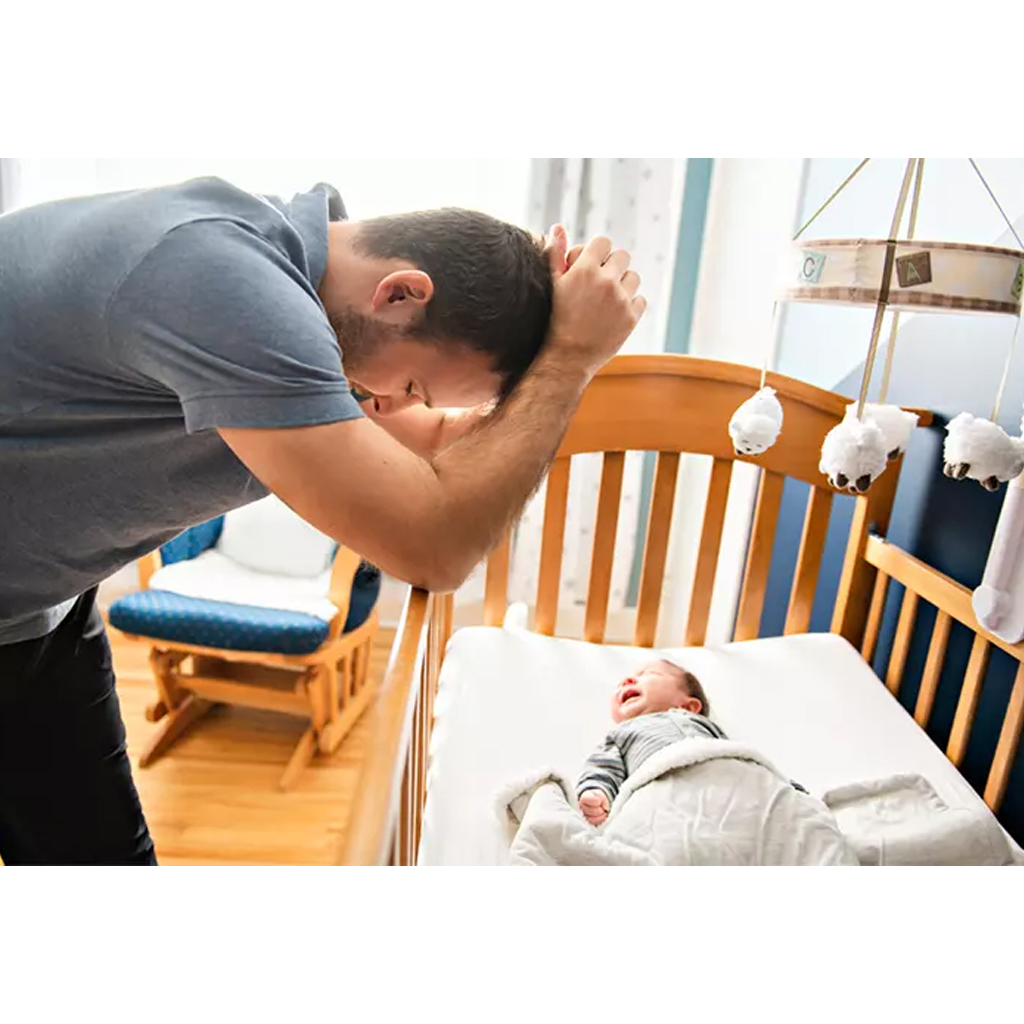 Have you ever considered that not only women undergo changes following childbirth? It turns out that men can also experience a range of physical and psychological changes when they become fathers, just as a woman’s body goes through various transformations during pregnancy and childbirth.
Have you ever considered that not only women undergo changes following childbirth? It turns out that men can also experience a range of physical and psychological changes when they become fathers, just as a woman’s body goes through various transformations during pregnancy and childbirth.
Due to hormonal shifts and even pregnancy-like symptoms, men can go through a spectrum of emotions. Even though these conditions may manifest differently in men than in women, they do exist. Isn’t that surprising? It’s time to acknowledge that many men undergo significant changes after the birth of their child. Would you like to learn about the physical and mental effects of pregnancy on you and your partner? Read on to find out!
Men Can Experience Significant Emotional Strain
Mothers are not the only ones under stress after the birth of a child. While they might have more direct responsibilities for meeting the baby’s needs, such as nursing and comforting, the arrival of a new family member can cause new fathers to experience elevated levels of stress and anxiety.
Unfortunately, many men don’t believe they can seek assistance when they feel uncomfortable with their new roles. They don’t want to distract their female partners or cause them concern. However, it’s entirely normal for men to experience emotional turmoil after the birth of a child, and seeking help can assist them in adjusting to these changes more effectively.
Brain Alterations May Occur Too
Surprisingly, the changes don’t stop at emotions. It turns out that the brain can also undergo alterations. Scientists studied the brain activity of a group of new fathers and observed that during the first four months after childbirth, the gray matter of their brains underwent noticeable changes.
These modifications are significant because they help new fathers develop their parenting skills and establish a strong bond with their offspring. As we know, these early father-child interactions not only lay a solid foundation for the future parent-child relationship but also play a crucial role in the child’s cognitive and social development as they grow. The brains of new fathers exhibit increased activity in specific areas, including planning, problem-solving, and detection. In other words, these are the areas that assist the father in ensuring their child’s safety. It’s truly fascinating to witness!
Highs and Lows Can Contribute To Postpartum Distress
Most of us have heard of postpartum depression in women, as it is more prevalent and well-known. But did you know that males are also susceptible to postpartum distress? This might come as a surprise, but it’s not as far-fetched as you might think. In addition to its other functions, testosterone plays a significant role in preventing us from feeling depressed, and when its levels decline, young fathers may become more prone to depression. These hormonal changes combined with the weight of fatherly responsibilities can be quite overwhelming for men, making them susceptible to mental health problems. It’s crucial to understand that hormonal and behavioral changes also occur in the bodies of fathers.
Oxytocin and Dopamine Concentrations Rise
Yes, there are more surprises in store. Lower levels of testosterone make way for the introduction of novel hormones in a man’s system. Oxytocin and dopamine are essential because they are responsible for the parent-child bond. The positive effects of oxytocin and dopamine increase after a male has a child, causing him to enjoy playing and cuddling with his child even more. How incredible is that!
Testosterone Levels May Decrease
Men produce the hormone known as testosterone, whereas women produce estrogen. A high amount of testosterone is responsible for aggressive and competitive behavior, as well as the ability to attract a new partner. However, something intriguing happens when men become fathers. The level of testosterone in men appears to decline. This suggests that men should direct their energy inward, towards the well-being of their family, rather than external matters.
Studies also indicate that men with a partner and those with children have lower testosterone levels than men without children and those still seeking a partner. This is likely how biology shifts a man’s priorities over time. Male bodies seem to have figured out how to lower testosterone levels to change men’s priorities and transform them into devoted fathers.
New fathers undergo numerous psychological and physical changes, which must be acknowledged and addressed. As a result, it’s essential for partners to spend time together and form a united family front during those initial months.










